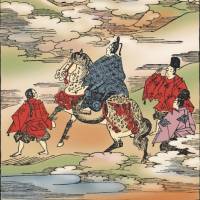Before there was "The Tale of Genji," the "The Ise Stories" ("Ise Monogatari") presented ancient Japanese audiences with a titillating series of loosely connected episodes of love that are believed to be based on the romantic encounters of the poet and aristocrat Ariwara no Narihira (825-880).
Although the core poems and stories are accepted by historians to be Narihira's own work, scholars agree there were multiple additions by various authors over the years. Narihira was the son of an Imperial prince, and his amorous wanderings and courtly brand of womanizing have inspired other Japanese writers for centuries. Thanks in part to the brevity of the stories coupled with the terse, elegant poems, this collection retains a sense of vibrancy. Joshua S. Mostow and Royall Tyler add commentary to their translation, further opening up a world long gone.
One brief exchange between Narihira and "a country girl" shows the pithy humor couched within the courtly restrains of the time. Narihira's romantic overture: "Swells the surging tide/ hither, onward through the reeds/ and just so in me/ leaps the ardor of a heart/ ever eager to be yours." And the girl's reply: "What that heart of yours/ harbors in its hidden cove -/ how, I ask you, how/ could a boatman's probing pole/ hit upon the truth of that?" As the narrative drolly comments: "Not too bad, perhaps, for a country girl." (Kris Kosaka)
Each week "Essentials" introduces a work of fiction that should be on the bookshelf of any Japanophile.

















With your current subscription plan you can comment on stories. However, before writing your first comment, please create a display name in the Profile section of your subscriber account page.